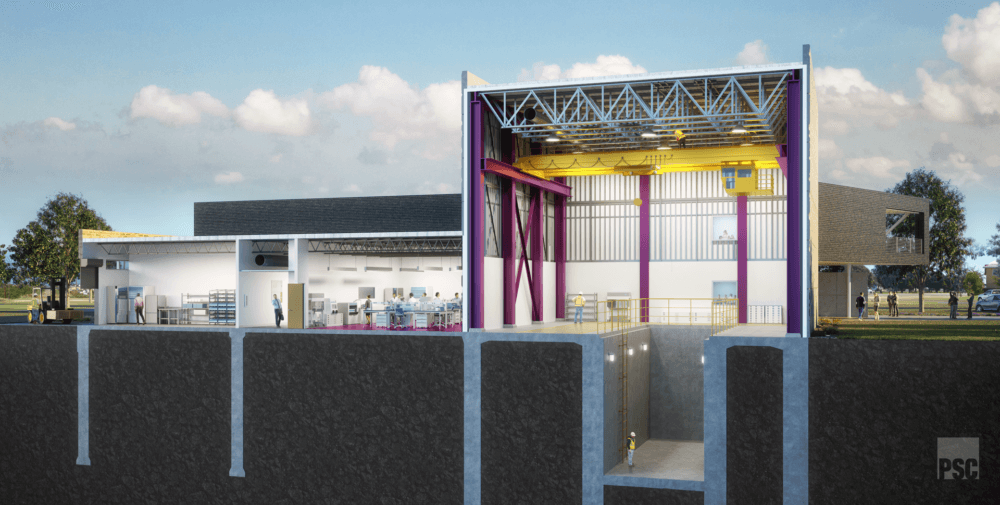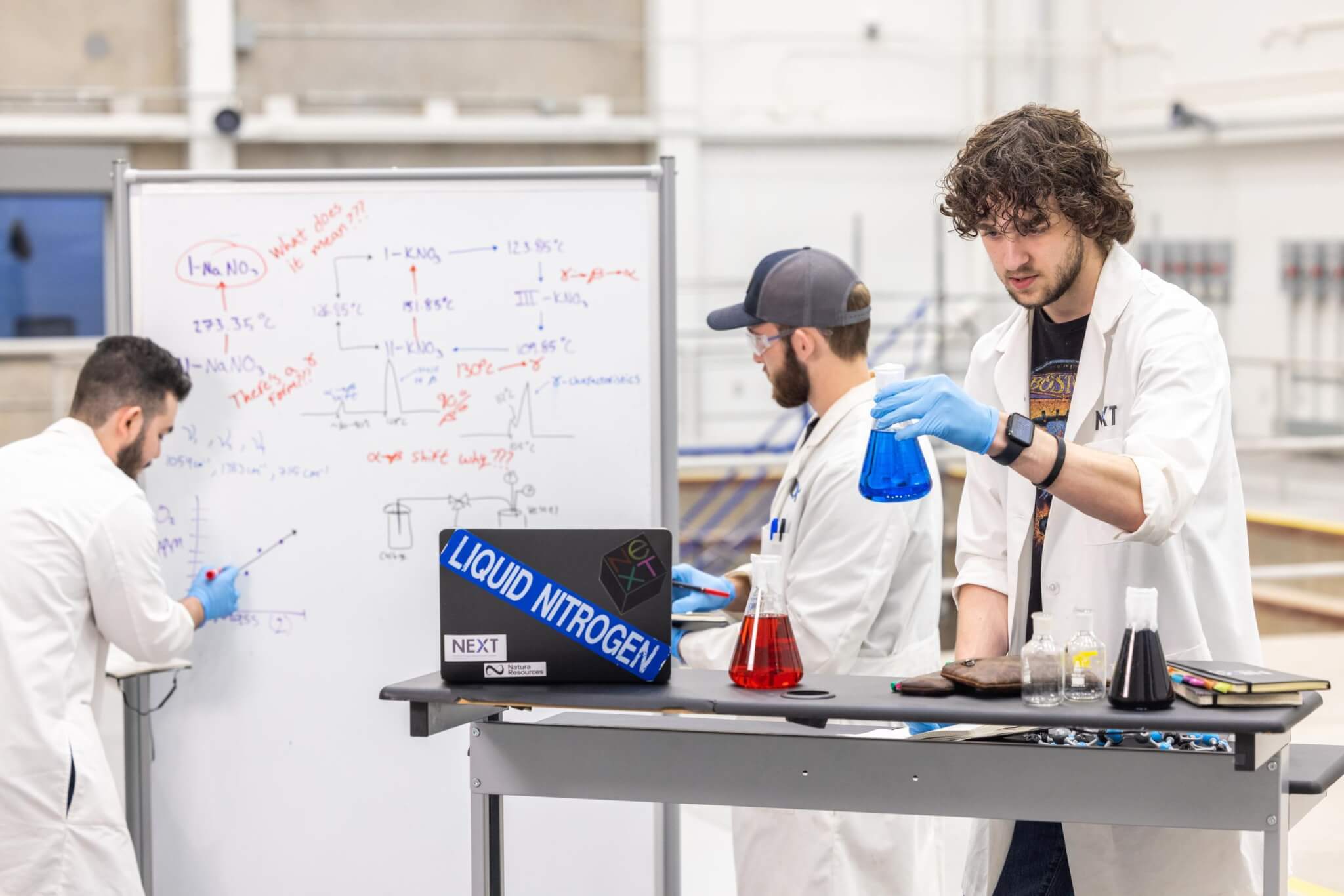NEXT Lab Timeline
2015
Nuclear Energy eXperimental Testing (NEXT) Lab was founded at ACU to perform research into molten salts and their uses in nuclear energy.
2018
Then principal deputy secretary for nuclear energy Edward McGinnis visited the NEXT Lab and encouraged the development of a molten salt research reactor. NEXT received several major grants, bringing their funding to over $5 million.
2019
The Natura Resources Research Alliance was formed with 3 other universities (Texas A&M, UT, and Georgia Tech). NEXT visited the DOE and presented a plan to build the Molten Salt Research Reactor (MSRR).
2020
Natura Resources, LLC, was founded and began sponsoring the research of the Natura Resources Research Alliance (NRRA). The NEXT Lab received its first patent.
2021
The Natura Resources Research Alliance (NRRA) was recognized by the Texas Senate and House of Representatives for advanced nuclear research. U.S. Senator Ted Cruz toured the NEXT Lab.
2022
A construction permit application for the first deployment of the Natura MSR-1, a 1 megawatt thermal molten salt reactor system, was submitted to the Nuclear Regulatory Commission on August 15, 2022.
2023
ACU’s Dillard Science Engineering and Research Center opened in September 2023. It includes a 6,000-square-foot research bay with a deep shielded trench, a 40-ton crane, specialized ventilation and enhanced electrical power to support a wide variety of research and development needs, including the construction of the MSRR.
The NEXT Lab was awarded its second patent.
2024
The United States Nuclear Regulatory Commission granted ACU a construction permit on September 16, 2024, marking the first liquid salt fueled reactor licensed by the NRC in American history and the first U.S. university research reactor approved in more than 30 years. The Molten Salt Test System successfully flowed salt, and two more patents were awarded.
2025
Natura Resources announced an MOU with ACU to collaborate with the Texas Produced Water Consortium located at Texas Tech University to demonstrate the potential for the MSR-1 to integrate with water desalination and energy production systems. This partnership is supported by a large appropriation of funds from the State of Texas signed by Governor Greg Abbott in July. Dr. Mark DeHart from Idaho National Laboratory was hired to lead a new graduate program in nuclear science and engineering, including the university’s first Ph.D. degree offering. ACU received three more patents for their groundbreaking work, bringing the total to seven. An Operating License for the MSR-1 will be submitted to the U.S. Nuclear Regulatory Commission by the end of the year.
2026
The Molten Salt Research Reactor, the first deployment of the Natura MSR-1, will go critical on the campus of Abilene Christian University.



